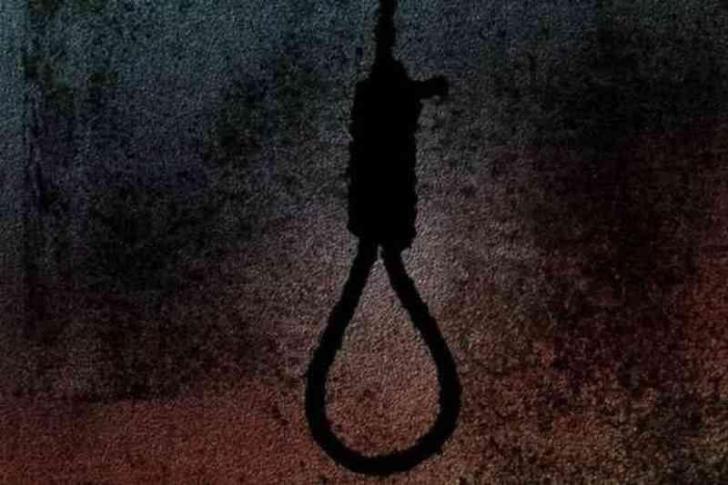News / National
More Bulawayo men commit suicide
01 Nov 2024 at 06:31hrs |
0 Views

Bulawayo has recorded 21 suicide cases since June this year, with an alarming 20 of them involving men, prompting police to call for increased community and family support to promote mental health. The tragic statistic spans a broad age range from 10 to 79, highlighting a pressing need for mental health interventions, especially for males, as noted by Bulawayo Provincial Police Deputy Spokesperson, Assistant Inspector Nomalanga Msebele.
"Since June, we've observed a worrying increase in suicide cases, with incidents happening nearly every two weeks. This trend is disturbing," she said, underscoring the complex and varied reasons behind the suicides. "Some motivations may not appear suicidal on the surface—one individual took his life before a maintenance court appearance, while another did so after being contacted by police regarding a case."
Police are urging people to seek help and talk through their challenges, with Asst Insp Msebele emphasizing that local officers can provide support and counselling. "We encourage individuals to talk to friends, pastors, or community leaders," she said. "Our community relations and liaison officers are stationed across Bulawayo to help those in need and can refer them to free counselling services. Suicide is not the answer to life's struggles."
The death of a 10-year-old girl in Pumula serves as a heartbreaking reminder of the importance of parental engagement. Asst Insp Msebele urged parents to closely monitor their children's emotional well-being, emphasizing that children's struggles may often go unnoticed.
Dr. Wellington Ranga, Clinical Director at Ingutsheni Central Hospital, noted that men particularly face significant mental health challenges and urged the community to develop modern approaches to handling stress. "Our current systems are outdated and often ineffective," he said. "Many of those we rely on for guidance, like counsellors and pastors, are themselves struggling with mental health issues. We need to explore new, effective solutions that address the mental health needs in our community."
Psychologist Jacqueline Nkomo added that societal expectations discourage men from expressing vulnerability, which can lead to destructive behaviors like substance abuse and even suicide. "Men are often pressured by norms that tell them not to show weakness, which can worsen feelings of isolation," she said. She also urged parents to create a supportive environment for children to share their emotions openly, cautioning that dismissive language can have a lasting impact on a child's mental health.
The escalating suicide rates in Bulawayo are a stark call to action. To counter the trend, mental health awareness must become a community-wide priority, with open communication, supportive networks, and stigma-free spaces for seeking help. By working together, the Bulawayo community can take steps toward a future where no one faces their struggles alone.
"Since June, we've observed a worrying increase in suicide cases, with incidents happening nearly every two weeks. This trend is disturbing," she said, underscoring the complex and varied reasons behind the suicides. "Some motivations may not appear suicidal on the surface—one individual took his life before a maintenance court appearance, while another did so after being contacted by police regarding a case."
Police are urging people to seek help and talk through their challenges, with Asst Insp Msebele emphasizing that local officers can provide support and counselling. "We encourage individuals to talk to friends, pastors, or community leaders," she said. "Our community relations and liaison officers are stationed across Bulawayo to help those in need and can refer them to free counselling services. Suicide is not the answer to life's struggles."
The death of a 10-year-old girl in Pumula serves as a heartbreaking reminder of the importance of parental engagement. Asst Insp Msebele urged parents to closely monitor their children's emotional well-being, emphasizing that children's struggles may often go unnoticed.
Dr. Wellington Ranga, Clinical Director at Ingutsheni Central Hospital, noted that men particularly face significant mental health challenges and urged the community to develop modern approaches to handling stress. "Our current systems are outdated and often ineffective," he said. "Many of those we rely on for guidance, like counsellors and pastors, are themselves struggling with mental health issues. We need to explore new, effective solutions that address the mental health needs in our community."
Psychologist Jacqueline Nkomo added that societal expectations discourage men from expressing vulnerability, which can lead to destructive behaviors like substance abuse and even suicide. "Men are often pressured by norms that tell them not to show weakness, which can worsen feelings of isolation," she said. She also urged parents to create a supportive environment for children to share their emotions openly, cautioning that dismissive language can have a lasting impact on a child's mental health.
The escalating suicide rates in Bulawayo are a stark call to action. To counter the trend, mental health awareness must become a community-wide priority, with open communication, supportive networks, and stigma-free spaces for seeking help. By working together, the Bulawayo community can take steps toward a future where no one faces their struggles alone.
Source - The Chronicle
Join the discussion
Loading comments…
































